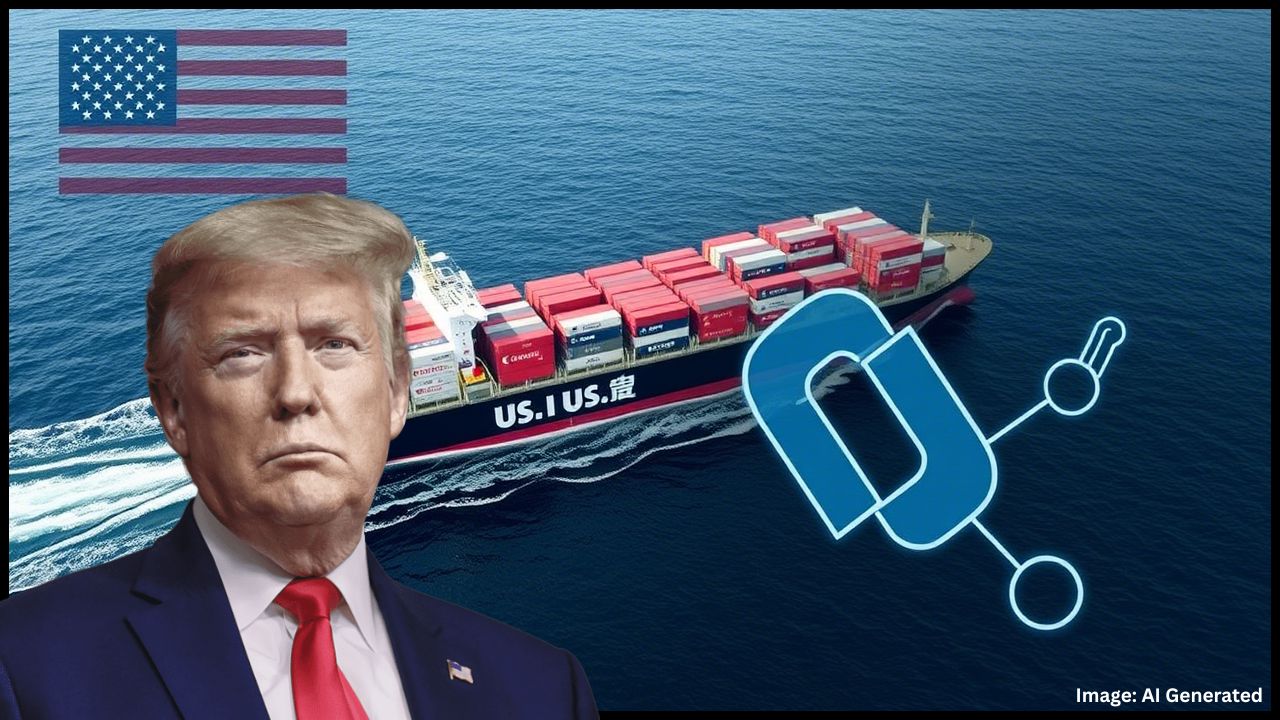In recent months, President Donald Trump has raised serious concerns about China’s compliance with a bilateral trade agreement, sparking renewed tensions between the two global economic powers. At the heart of the dispute is China’s ongoing restriction on the export of rare earth magnets, vital components used in a wide range of high-tech applications, from electric vehicles to advanced military systems.
While the trade deal initially aimed to ease tariff disputes, Trump has accused China of “totally violating” the agreement, which has stalled further progress. Meanwhile, the U.S. Court of International Trade ruled that some of Trump’s tariffs exceed his executive authority, adding legal complications. This article unpacks the key issues, explains why rare earth magnets matter, and explores the wider impact on global trade and industries.
Quick Summary
- China accused of violating trade agreement by maintaining export restrictions on critical rare earth magnets.
- Rare earth magnets are essential for electric motors, clean energy, and defense technologies.
- Legal rulings challenge U.S. tariff authority, raising questions about executive power in trade enforcement.
- Stalled U.S.-China negotiations suggest direct talks between leaders Trump and Xi Jinping may be necessary.
- Global industries affected, including electric vehicles, renewable energy, and electronics. (Time Magazine)
What Are Rare Earth Magnets and Why Are They Important?
Rare earth magnets are powerful permanent magnets made from alloys of rare earth elements such as neodymium, dysprosium, and praseodymium. Despite the name, these elements are relatively abundant but are difficult to extract and process economically.
Common Uses
- Electric Vehicles (EVs): Motors in EVs rely on rare earth magnets for efficiency and performance.
- Wind Turbines: They use these magnets in generators to produce clean energy.
- Consumer Electronics: From smartphones to headphones, rare earth magnets are critical components.
- Defense Systems: Precision-guided weapons and radar systems depend on these magnets.
China’s Dominance
China controls about 90% of global rare earth production and processing, giving it significant leverage in global supply chains. This dominance has been a strategic concern for many countries, including the U.S., especially given rare earths’ importance in modern technologies and national security.
Trump Raises New Trade Concerns Over China: How Has China Violated the Trade Agreement?
In the recent trade agreement between the U.S. and China, China agreed to ease export restrictions on rare earth magnets and other critical materials. However, according to Trump and U.S. Trade Representative Jamieson Greer, China has not resumed exports as agreed.
This has significant ramifications:
- Disruption of Supply Chains: Manufacturers in the U.S. and allied countries face shortages, leading to potential production delays.
- Increased Costs: Companies may have to source rare earth magnets from more expensive or less reliable suppliers.
- Geopolitical Leverage: China’s actions demonstrate how control over strategic resources can be used as a bargaining chip.
Trump also criticized China for breaching the 90-day tariff truce—during which tariffs were temporarily lowered (U.S. tariffs on Chinese goods reduced from 145% to 30%, and China’s tariffs on U.S. goods from 125% to 10%). He claimed the truce stabilized economic conditions but accused China of violating the agreement without providing detailed evidence.
Legal Challenges to Trump’s Tariff Authority
In addition to trade disputes, the U.S. Court of International Trade ruled that President Trump exceeded his authority under the International Emergency Economic Powers Act (IEEPA) of 1977 when imposing sweeping tariffs in April.
What Did the Court Say?
- The tariffs went beyond what the IEEPA authorizes for responding to national emergencies.
- The ruling temporarily halted enforcement but was stayed on appeal, so tariffs remain in place pending further review.
- The ruling has led the administration to explore other legal avenues, such as provisions of the Trade Act of 1974, to impose tariffs.
Why Does This Matter?
- This ruling sets a precedent for limiting executive power over trade policy.
- It may encourage Congress to play a larger role in approving tariffs.
- Legal uncertainty affects businesses and investors who rely on predictable trade policies.
Stalled U.S.-China Trade Negotiations and the Road Ahead
Despite a 90-day tariff truce, negotiations have stalled, with no clear resolution in sight. Treasury Secretary Scott Bessent recently emphasized that direct talks between Presidents Trump and Xi Jinping may be necessary to break the deadlock.
Why Are Direct Talks Important?
- Trade negotiations involve complex issues like intellectual property rights, market access, tariffs, and national security.
- Senior leaders can cut through bureaucratic gridlock and make high-level decisions.
- Given the stakes—from economic growth to geopolitical stability—effective communication at the top level is crucial.
Practical Implications for Businesses and Policymakers
For Businesses
- Diversify Supply Chains: Relying heavily on Chinese rare earth supplies poses risks; look for alternative suppliers or invest in domestic production.
- Monitor Trade Policy Changes: Stay informed about tariff changes and legal rulings to adjust pricing and sourcing strategies.
- Advocate for Policy Clarity: Engage with policymakers to push for clearer trade rules and support for critical mineral development.
For Policymakers
- Invest in Domestic Rare Earth Mining: Boosting domestic production reduces dependence on China.
- Clarify Legal Authority: Ensure clear legislative frameworks govern trade and tariffs.
- Enhance Diplomatic Engagement: Promote high-level dialogue to resolve disputes and maintain global trade stability.
Overall Summary
The recent concerns raised by President Trump over China’s trade practices—especially regarding rare earth magnet exports—highlight the intricate, high-stakes nature of modern international trade. As legal challenges to tariff authority complicate U.S. policy and negotiations stall, the global economic landscape faces uncertainty.
For businesses, strategic planning and supply chain diversification are essential. Policymakers must strengthen legal frameworks and engage in direct diplomacy to avoid prolonged disputes that can harm global growth.
Ultimately, the situation underscores that trade agreements are not just about economics but also about national security and technological leadership. Clear communication, legal clarity, and cooperative negotiation remain vital to finding lasting solutions.
Read More
Social Security & SSI in June 2025: Are You on the Payment List This Month?
FAQs on Trump Raises New Trade Concerns Over China
Q1: Why are rare earth magnets so critical in trade discussions?
A1: They are key components in modern technology and defense. Control over their supply affects industries and national security.
Q2: What is the 90-day tariff truce?
A2: It was a temporary agreement reducing tariffs on many goods to ease tensions and allow time for negotiations.
Q3: How do legal challenges impact tariffs?
A3: If courts rule tariffs are unauthorized, it could lead to their removal or changes in how trade policy is implemented.
Q4: Can the U.S. develop its own rare earth supply?
A4: Yes, but it requires significant investment, technology development, and environmental considerations.
Q5: What could happen if negotiations fail?
A5: Trade tensions could escalate, tariffs may increase, and global supply chains could be disrupted further.









No Comments Yet
Be the first to share your thoughts.
Leave a Comment